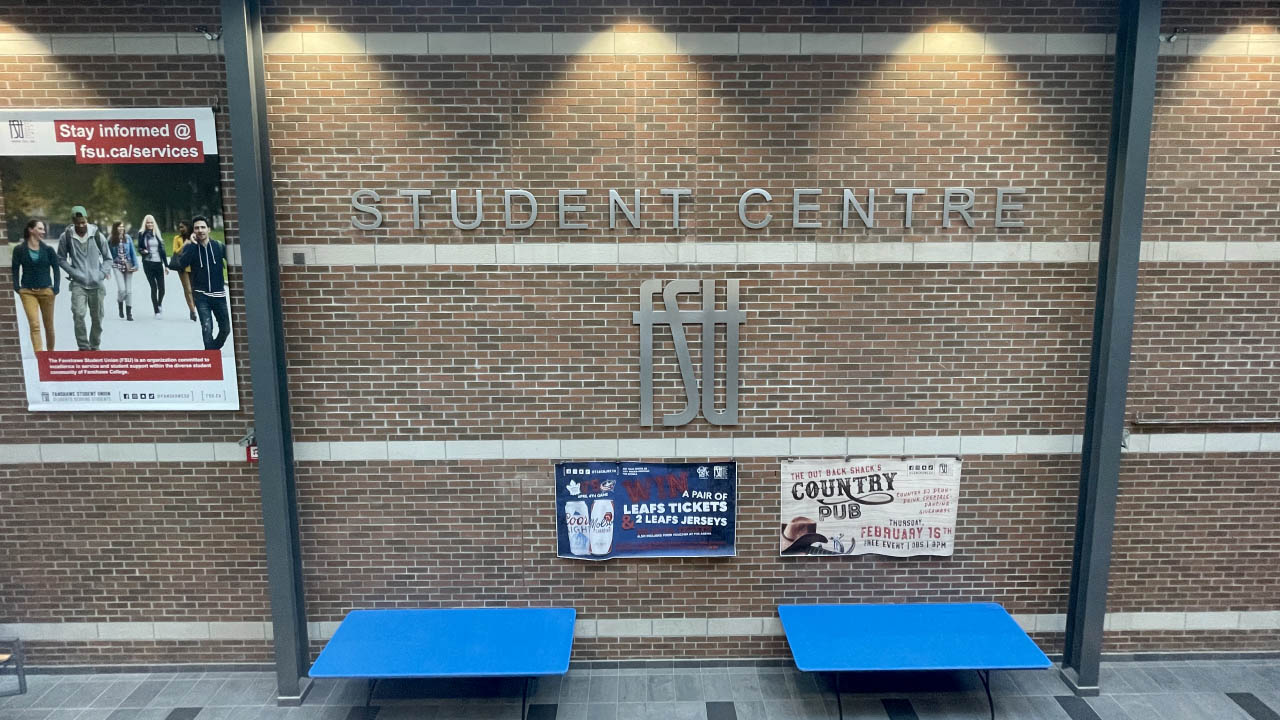FSU to hold referendum to increase ancillary fees
 CREDIT: HANNAH THEODORE
CREDIT: HANNAH THEODOREThe proposed plan would see a $3 per term addition to the ancillary fees, which would be designated towards a General Advocacy Fee.
Students voting in the upcoming Fanshawe Student Union (FSU) election will have their say on another important issue: a $6/year ancillary fee increase.
Domestic students currently pay just over $750 per term in ancillary fees, while international students pay about $1,450 per term. These numbers include the total fees paid to both the FSU and the college, with about $290 per term being paid directly to the FSU each term, for both domestic and international students. These ancillary fees cover the cost of things like events, bus passes, and campus operations. A full breakdown of these ancillary fees can be found at fsu.ca.
The proposed plan would see a $3 per term addition to the ancillary fees, which would be designated towards a General Advocacy Fee. Students will be asked to vote either “yes” or “no” during FSU Elections, which are held over FanshaweOnline from March 6 at 9 a.m. to March 8 at 2 p.m.
According to current FSU President Ismail Aravai, the increase in fees would go towards supporting student advocacy at the provincial level, particularly through a membership with the advocacy organization, Ontario Student Voices (OSV).
“The priority of the organization, provincially, would be student housing, international student support, OSAP, student debt, mental health, and food insecurity,” Aravai said.
Ontario Student Voices would act as a lobbying organization, promoting student advocacy at the provincial and federal level. Aravai sits on the Board of Ontario Student Voices, which was launched in 2022, following committee discussions involving former FSU President Ricardo Souza.
If students vote “no” on the referendum, Aravai said the Student Union would continue to support student advocacy at the local and municipal level, unchanged, without the membership to OSV.
“[If students vote “no,”] this forum will not have the resources required to expand its advocacy efforts, making it less likely for advocacy on behalf of the college or polytechnic students to effectively reach conversations that impact the student experience beyond the local level,” Aravai said.
A “yes” vote, meanwhile, would give the FSU the ability to support future advocacy efforts, like Ontario Student Voices. The General Advocacy Fee is not specifically designated for Ontario Student Voices, however, and if the FSU were to cancel their membership with OSV in the future, the fee would continue to support advocacy efforts in other ways.
“For example, Mohawk and Conestoga, they hired a full-time position in the student union who is a researcher and manages the advocacy, so something like that to the future.”
Aravai said he hopes that students will turn up to vote in the FSU Elections, and by extension, the referendum. Currently there are 10 candidates running for FSU president and 15 candidates running for eight available board of directors positions.
“That’s a huge population… that will bring at least 200 votes,” Aravai said.
The results of the FSU Election and the referendum vote will be shared March 8 at 3 p.m.
CORRECTION: The printed version of this article stated that domestic students pay $750 in ancillary fees, and international students pay $1,450 in ancillary fees towards the FSU. The corrected version clarifies that only part of these ancillary fees go towards the FSU, with the majority being paid towards the college.

















